Last day to file for 2023 Elections
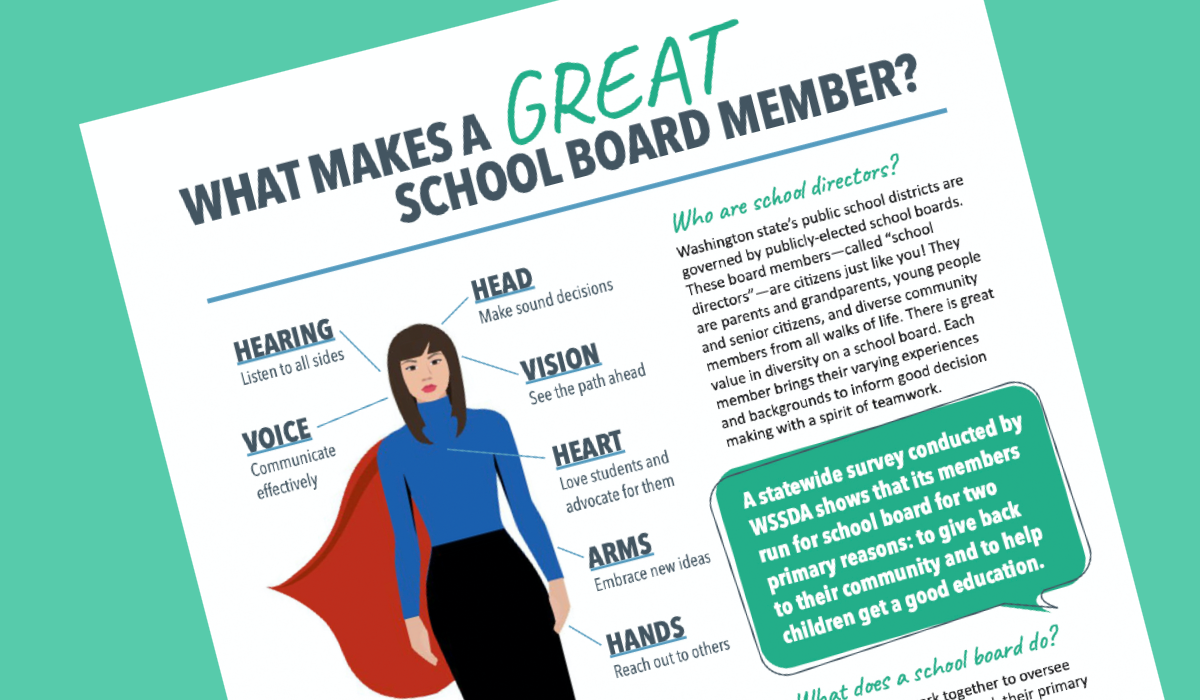
If you’re thinking of running for a school board, Friday, May 19 is the last day to file for the next round of elections. The Washington Secretary of State website provides all the information you’ll need.
Why run?
But why run for school board in the first place? If your first thought is to help foster student success, then you’re on the right track. Ongoing research shows that effective school board-superintendent teams positively impact student performance.
A Team Sport
You’ll notice the word team in the previous sentence. Serving on a school board is mainly a team “sport,” not an individual sport. In other words, individuals need to hone their skills, but governance only occurs through the collective action of the team.
Supporting Individual and Team Success
The Washington State School Directors’ Association (WSSDA) provides many tools to help school boards promote student success through effective governance. Three tools that complement each other are informed by ongoing research on the connection between school boards and the performance of school districts and their students. The tools are:
- The Washington School Board Standards
- A free board self-assessment survey
- Virtual and in-person trainings supplemented with learning events like WSSDA’s annual conference
Candidate Workshops
After you’ve filed and become a candidate, sign up for a virtual candidate workshop offered by WSSDA in June. The workshops will cover:
- Roles and responsibilities of school directors
- The importance of the board-superintendent team
- Meetings and the Open Public Meetings Act (OPMA)
- Live Q&A
Participation is limited to candidates plus current school directors and superintendents. Learn more about serving on your local school board and what makes a great school board member.
Expanding the expertise of school directors
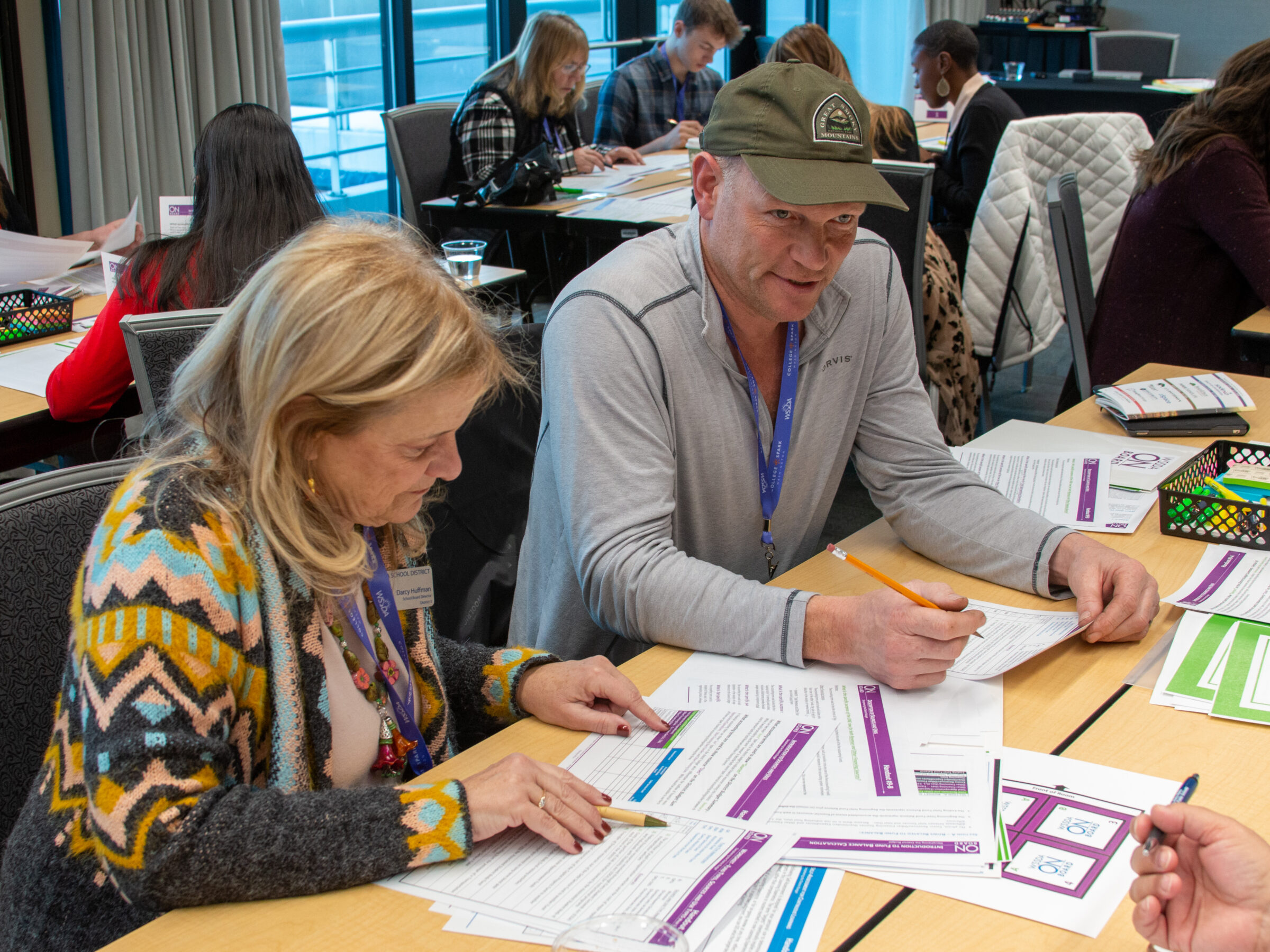
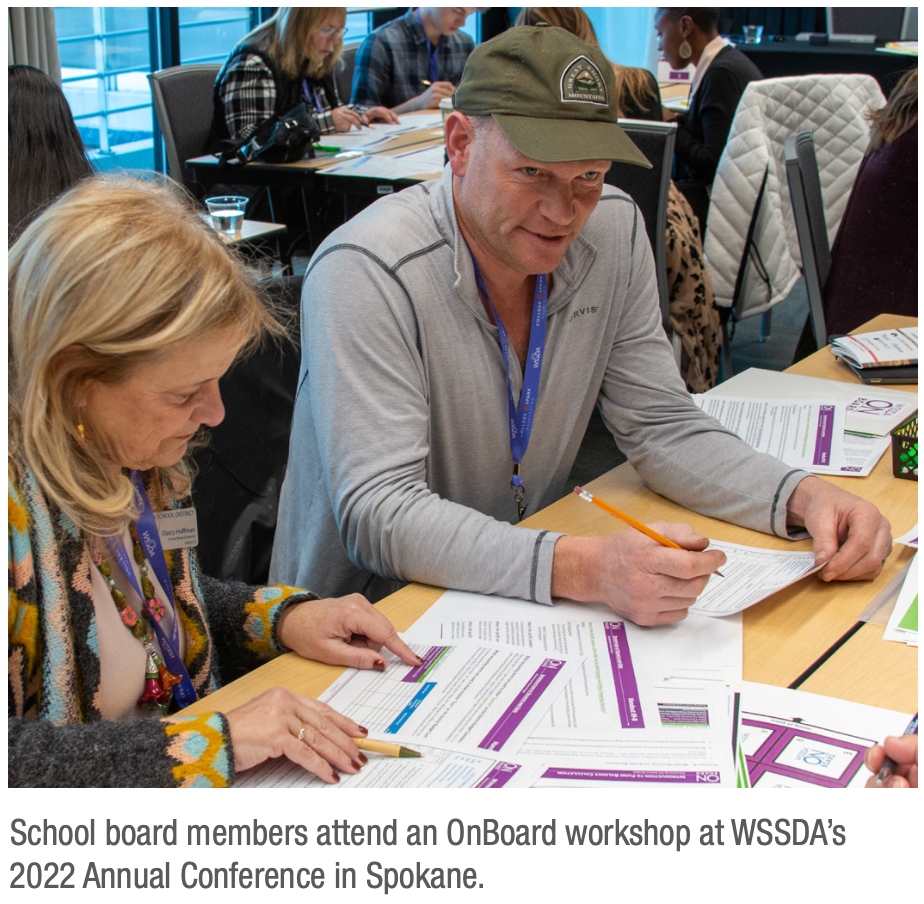
WSSDA’s OnBoard training has grown substantially since it was introduced in 2019. Several learning experiences covering school finance, district budgets, and educational equity are available. And more topics are on the way. Being responsive to the needs of school directors has always been a high priority. Therefore, OnBoard is evolving to give directors more choices and greater flexibility.
The requirement to take an introductory course before other equity trainings has been removed. This change honors the lived and professional experience that directors may already have. The background of each school director is unique, and so is the expertise they bring with them.
The educational equity trainings that cover various aspects of diversity, inclusion, and cultural proficiency, specific to the school director role, are now available to take in any order. Starting in 2023, taking any two learning experiences will fulfill the legislative mandate for initial training in educational equity. Learn more at wssda.org/onboard.
This article was originally featured in the Spring 2023 issue of Direct. Visit wssda.org/direct to see all the latest issues.
How school boards direct WSSDA’s advocacy
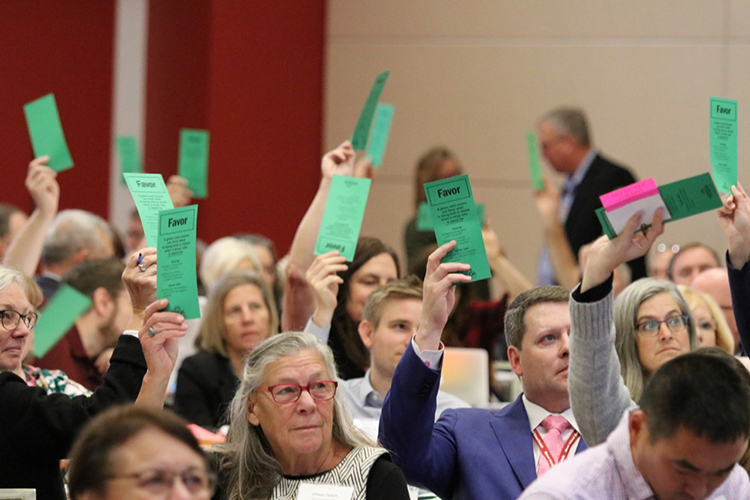
What do you get when you gather 1,477 school board directors from around Washington state? Answer: 1,477 different perspectives. So how does WSSDA go from 1477 viewpoints down to a single advocacy platform? It’s simple: democracy.
Basically, it’s a year-round process with three phases: reflection, discussion, and voting. School boards are encouraged to reflect on WSSDA’s positions throughout the year. In the spring, they discuss any updates or changes a board might want and then propose them through an online process. All proposals will be debated and voted on at General Assembly in the fall.
“I can’t stress enough how much we need every school board to participate,” said WSSDA board member Katherine Humphrey of Boistfort School District. “If you’re a small district, like mine, please don’t think your vote doesn’t count. It’s important we all engage with the process to represent our schools and communities. WSSDA needs the input of each of us to best represent every corner of our diverse state.”
WSSDA has over 200 positions that make up its platform. The platform directs WSSDA’s support or opposition to education legislation as it moves through government at the state and federal levels. That’s why it’s important that all boards participate in the revision process each year.
When position proposals are submitted in the spring, they’re sorted into two categories: permanent and legislative. Permanent positions represent WSSDA’s beliefs and values and indicate WSSDA’s stance on issues of widespread concern for its membership. Those proposals go to WSSDA’s Resolutions Committee. Legislative positions are calls to action for the Legislature, so those proposals go to WSSDA’s Legislative Committee.
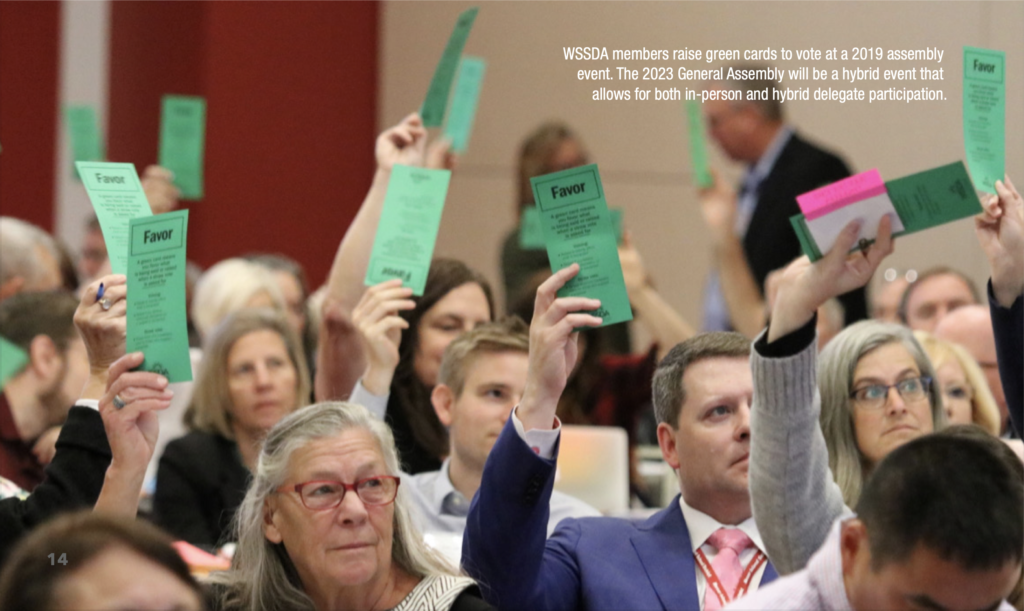
“One of the most important things to remember about the Legislative Committee is that we don’t show up representing our own personal point of view or the view of our district,” said Legislative Committee Chair Rebecca Stillings. “That is one of the key things that we need to remember as we go about doing the work of 295 school districts across the state. We take all the proposals and carry them through debate and discussion, and ultimately decide whether we believe as a committee that these positions are representative of the state as a whole and what we, as an association, want for public education in the state of Washington.” The committee then makes a recommendation of “pass” or “do not pass” for the General Assembly, where boards will vote according to their preference.
“Some of these legislative positions can make a huge difference in the success of our students,” said Legislative Committee member Marisa Peloquin of University Place School District. “For example, I come from a military background, and one of WSSDA’s positions revolves around graduation pathways. We’ve got a lot of students who are sons or daughters of military service members that have moved from other states and still want to have a viable pathway to graduation. And so, part of that legislative position was making sure that students had the right pathway, that barriers were reduced, and that they could still transfer from, say, Fort Bragg, North Carolina, to Joint Base Lewis-McChord and still be able to graduate with the work that they had already done.”
While the Legislative Committee focuses on legislative action, the Resolutions Committee shepherds positions that represent core values, such as the idea that students deserve a voice on school boards. “It’s important to us as a committee that we’re trying to represent all of Washington in what we do, that our positions are unbiased, they’re nonpolitical,” said Resolutions Committee Chair Trey Ising. “They’ll stand the test of time regardless of what’s going on in the world.”
School boards can consider proposals for the WSSDA platform before spring. Directors are encouraged to read and review the platform year-round. Especially while using it during a legislative session, they should jot down improvements they might hope to see. Then in springtime, if a board agrees upon some improvements, they can propose them between April 17 through May 12 of this year.
Channeling WSSDA’s multitude of perspectives into a single platform is an opportunity to engage in friendly debate, disagree with grace, and find common ground. In the words of Resolutions Committee Vice Chair Melissa Beard, “We might disagree on certain solutions to problems, but we all usually agree on what the goal is, and it’s to make sure students can succeed.”
This article was originally featured in the Spring 2023 issue of Direct. Visit wssda.org/direct to see all the latest issues.
Want to present at Annual Conference?
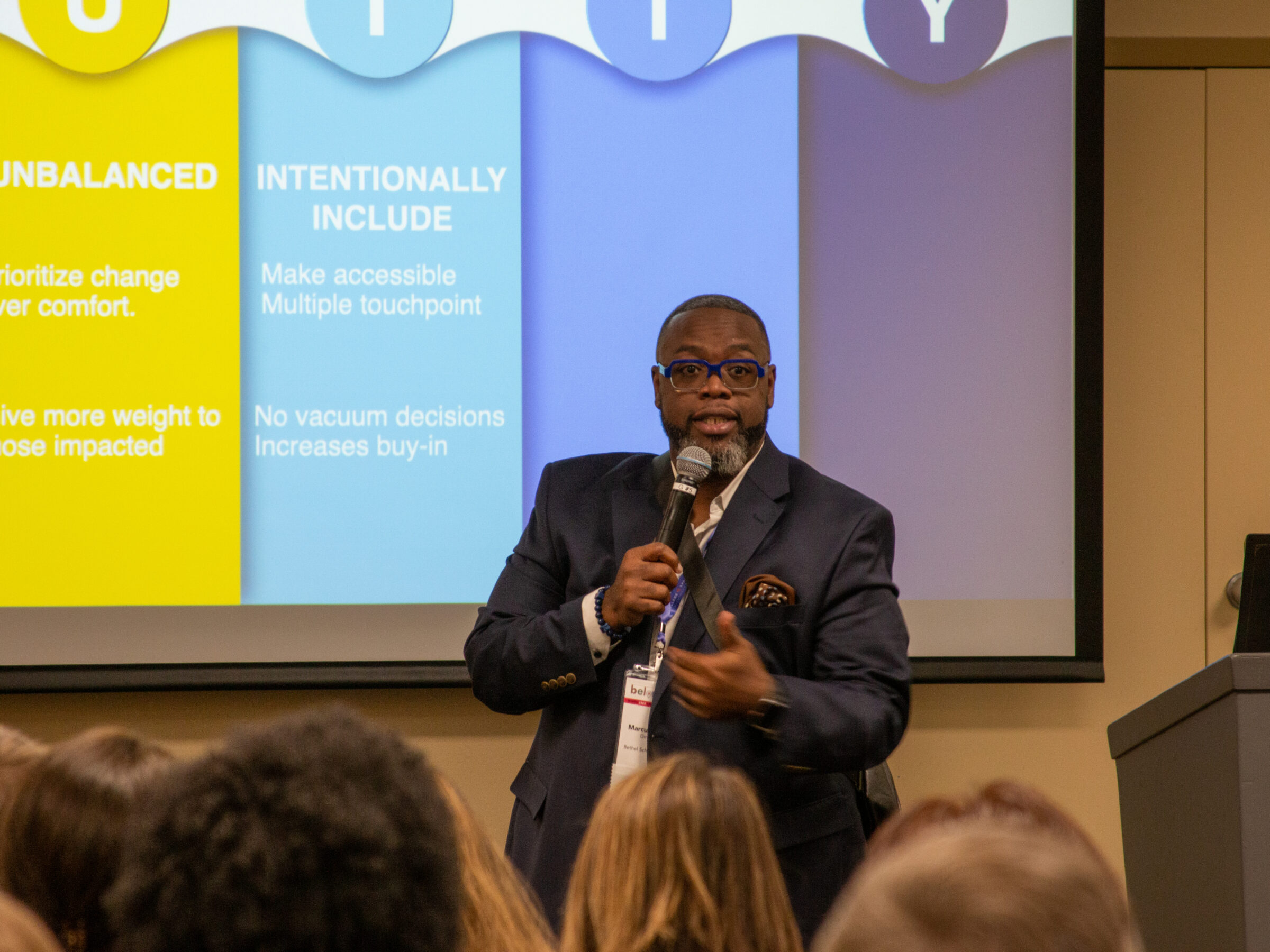
Last year’s Annual Conference in Spokane offered more than 50 breakout sessions on topics important for school district leaders.
Call for presenters!
Ever attend a WSSDA Annual Conference and think, “Hey! I wish someone would present on this topic…”? Well, maybe that someone could be you! The conference committee seeks a wide variety of topics and presenters to ensure there is something for everyone. School directors and board-superintendent teams present most breakout sessions.
Consider how you or your district team might share your successes and learnings in the six topic areas (called strands) of effective governance:
- Effective Governance
- Strategic Advocacy
- Visionary Leadership
- Student Success
- Student Wellbeing
- Educational Equity
Submit your proposal
WSSDA is accepting proposals from April 14 – May 31, 2023. It’s an easy process and a great way to ensure the topics that are important to you are offered. Be sure to put the May 31st deadline on your calendar because late proposals are not accepted. Learn more and access the proposal form at wssda.org/present.
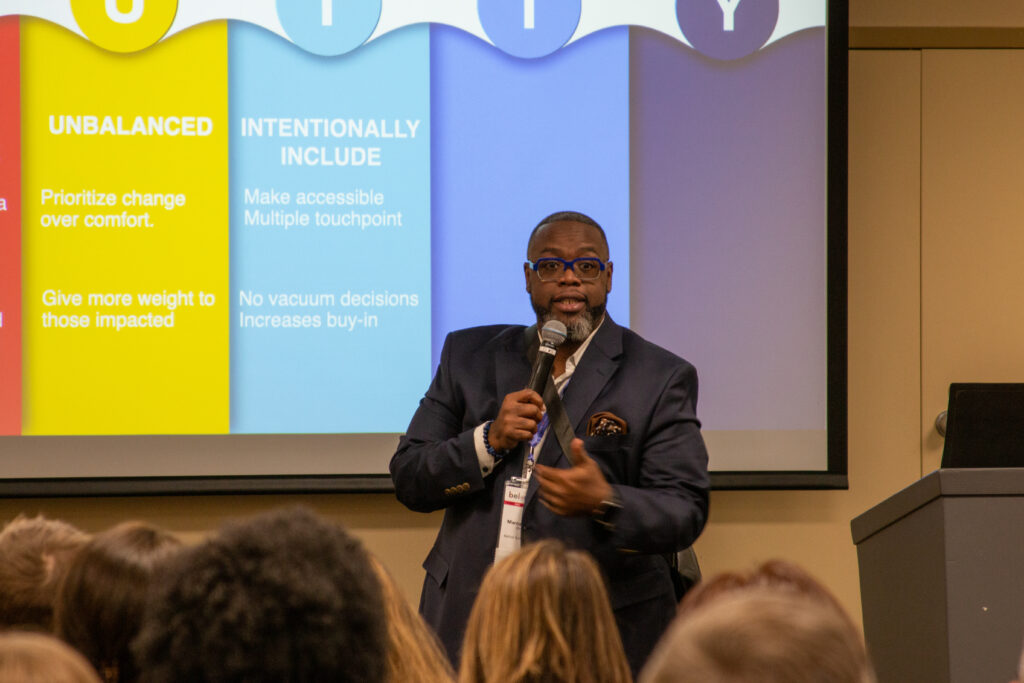
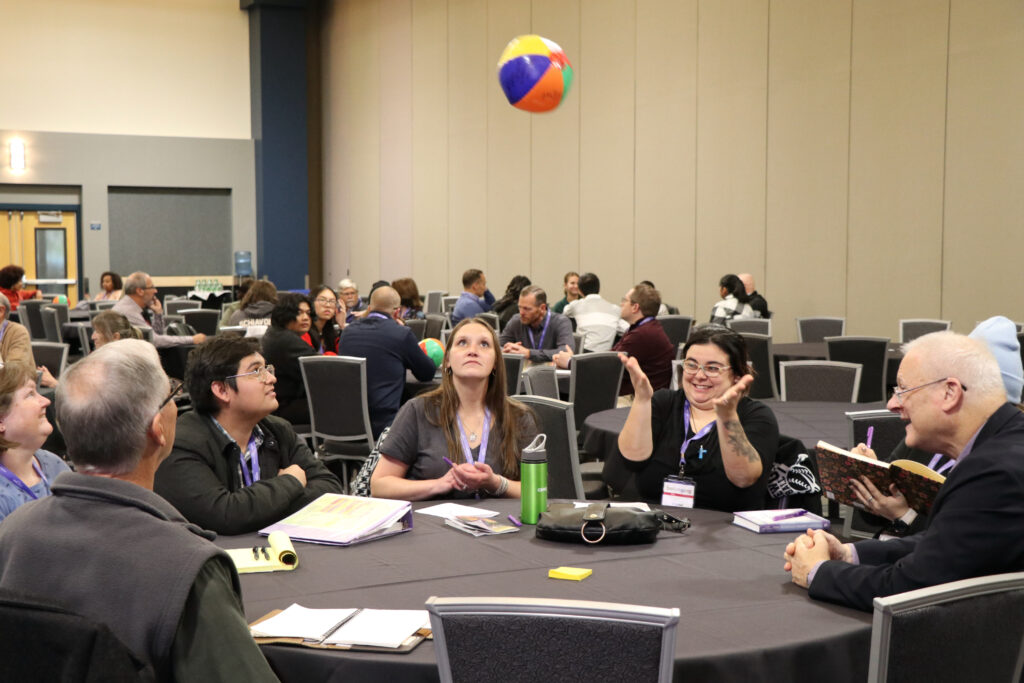
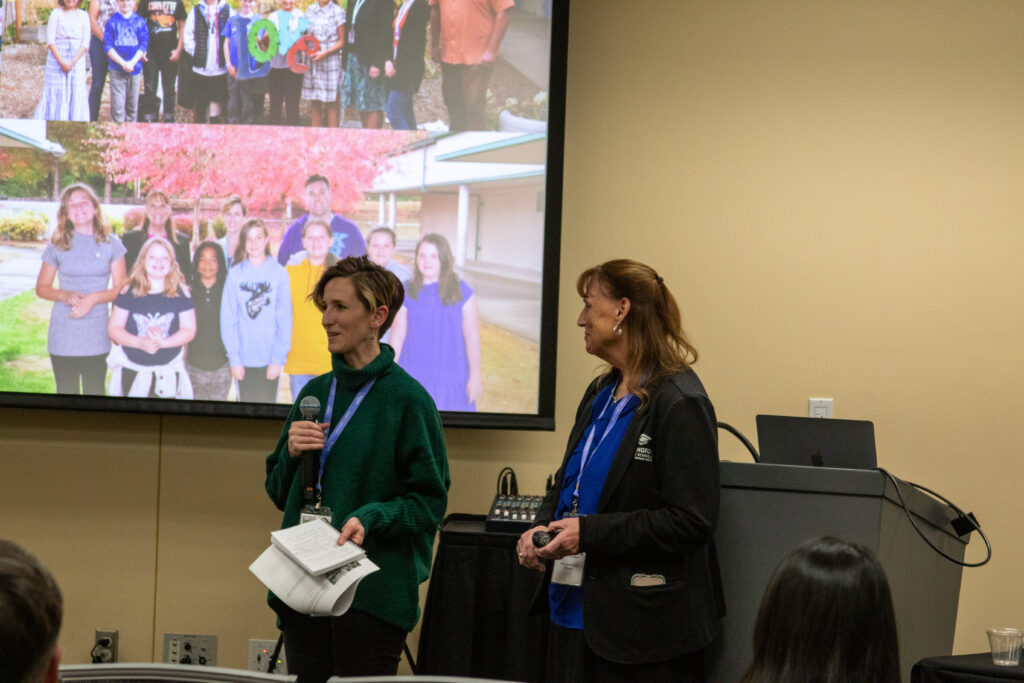
Learn about shaping WSSDA’s platform with this online tutorial

School directors, do you want to help shape WSSDA’s advocacy? Now is the time to meet with your board, discuss any potential changes you would like to suggest for the WSSDA platform, and put any proposals to a vote.


Local school boards have the opportunity to update the platform through an online proposal process each spring. This annual revision process helps to inform future support for, or opposition to, education legislation.
Directors use WSSDA’s Positions Catalog year-round, especially as they advocate during the legislative session. Along the way, they jot down suggested platform improvements and discuss these with their school board.
Types of Proposals
Boards are encouraged to think beyond their own district and propose changes that benefit students across the state. These fall into two categories: permanent positions and legislative positions. School boards must vote to approve any proposal submitted.
WSSDA position proposals do the following:
• Recommend a change to an existing permanent or legislative position.
• Recommend the consolidation of one or more existing permanent or legislative positions.
• Propose a new permanent or legislative position.
• Recommend the retirement of an existing permanent or legislative position.
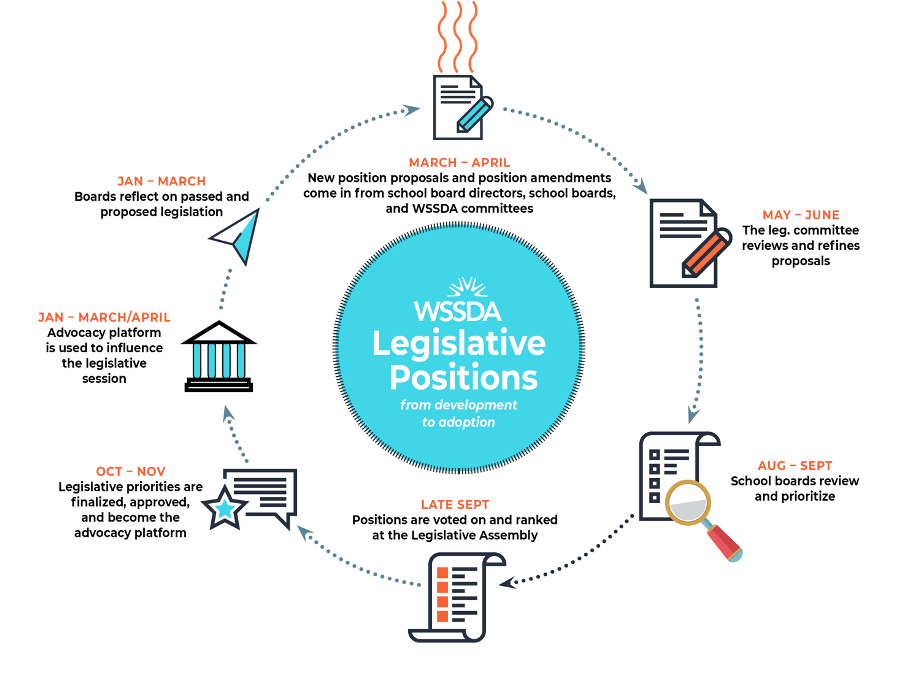
Prepare the Proposal
School boards prepare the submission using the position proposal checklist.
Submission During the Open Window
After taking action to approve the submittal, boards fill out the online proposal form for each proposal.
Types of Positions
Permanent positions are core beliefs and values that are advisory to school boards.
Legislative positions guide WSSDA’s year-round advocacy efforts.
Who Can Submit Position Proposals?
In addition to local school boards, WSSDA’s Legislative and Resolutions Committees, and WSSDA’s Board of Directors may also propose changes.
General Assembly Ratification
The WSSDA Board president presents proposals to WSSDA’s General Assembly in September for deliberation and a vote. This year, General Assembly will take place from September 22-23rd.
Ratified positions become a part of WSSDA’s platform and inform advocacy at the local, state, and federal levels. Channeling 1,477 perspectives into a single platform is an opportunity to engage in friendly debate, disagree with grace, and generate broad-based support for K-12 public education in Washington state.
For More Information
See also:
